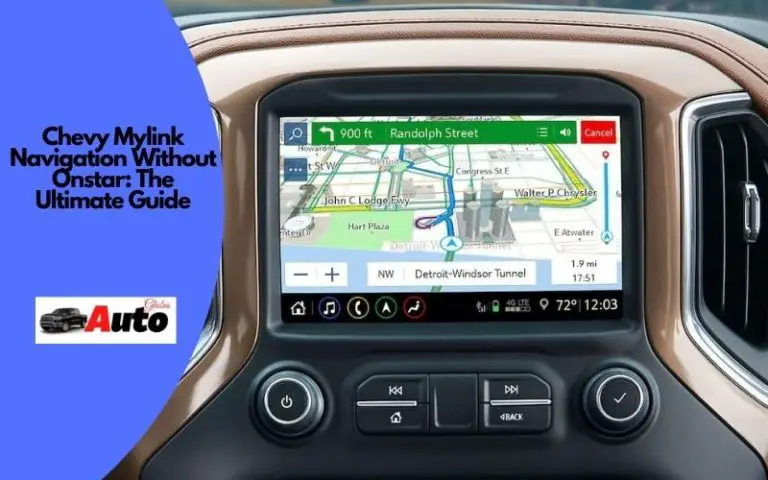Why Does My Chevy Truck Losing Power When Accelerating? (Fix Now)
Nothing is better than enjoying a long drive along the highway on the weekend nights. You love it too don’t you?
Imagine your chevy suddenly losing power just the moment you pressed the gas pad. What a bad start to your drive, right?
So, why does a Chevy truck lose power when accelerating and how to fix it?
Now there are several reasons behind the scarcity of power delivery to your Chevy. This could be mostly due to a faulty or clogged fuel filter.
In the majority of cases, it mostly gets fixed when you’ve located the faulty fuel filter and replaced it with a new one.
The process might seem simple, which it is, but still, there are minute details that you need to pay attention to. Hence, stick with this write-up for further elaboration.
Why is Chevy Truck Losing Power When Accelerating?
Just like we discussed above there are numerous reasons for a Chevy truck to lose power and with these numerous reasons comes great solutions.
Now the common issue most Chevy truck drivers had faced was a problem with the fuel filter. This could mostly be fixed by replacing it with a new one or cleaning it by yourself.
But there were several bizarre incidents as well. So let’s discuss most of the common reasons for your Chevy truck losing power when accelerating.
A Clogged Or Bad Fuel Pump
The fuel pump is responsible for sending in the right amount of fuel and also at the right pressure. If your fuel pump is clogged or faulty, then it could lead to the malfunctioning of the power unit.
It could be caused due to contaminated fuel, overheating, clogged filters, and so on. A common symptom would be the check engine light going on.
A Faulty Fuel Injector
If a fuel injector fails, it wouldn’t be able to deliver the engine with the right amount of fuel, necessary for the engine to run smoothly and efficiently.
Some early symptoms of a faulty fuel injector except for the lack of power when accelerating would be poor gas mileage, finding it difficult to start your Chevy and cylinder misfiring.
The Failure Of The Oxygen Sensor
The oxygen sensor measures the amount of exhaust emitted to the environment. Now, this stimulates the ECM to determine the correct proportion of oxygen in the fuel.
In other words, it maintains accurate fuel mixture proportions to result in better engine performance.
Symptoms that might help you differentiate this issue from others could be the check engine light and poor fuel economy.
A Clogged Fuel Filter
The fuel filter enables the engine to get rid of harmful impurities through the typical filtration process. Now, if the filter is clogged with dirt and impurities, it would fail to do its job.
This is most likely the root of all problems as it usually gives in to the symptoms of a bad fuel pump by letting harmful impurities pass through.
Leading to poor engine performance.
A Clogged Air Filter
Air is required in the combustion chamber of the engine. Thus, the air needs to be pure. However, a clogged air filter might allow harmful dirt and debris to enter the engine.
This could result in severe damage most likely due to incomplete combustion of fuel.
Symptoms that might help you differentiate it from others would be noisy air intake sounds, black smoke from the exhaust, and an extremely dirty air filter when checked.
And that ends the common issues reported by most Chevy truck drivers regarding the truck losing power when accelerating.
How To Fix Chevy Truck Losing Power When Accelerating?
There are actually a lot of reasons for your Chevy truck losing power when accelerating—leading us to a ton of fixes.
So it’s a wise choice to take a diagnostic approach to this repair. We’ve gone ahead and made the necessary preparations to make the process seem simple and efficient.
Let’s look at the methodic steps given below for complete diagnosis and troubleshooting of your Chevy truck.
Step 1: Check The Truck Display For Any Abnormal Activity
The first diagnosis tip would be to check in the truck display for settings and then move into the essential readings like oxygen or fuel intake.
You simply need to make sure that the readings are exactly where they need to be. If not, then you might need to start with repairing the oxygen sensors or the fuel intake equipment.
Step 2: Replace The Old Clogged Air Filter
It’s extremely important to keep the air filters in check as they can be easily located for inspection. So lead your way through the engine to the air filter.
If you notice a black clogged air filter, pull it and replace it with a fresh new one from your local store.
Step 3: Replace The Fuel Pump And Fuel Injector
Once you’ve noticed from the display that your fuel delivery is not to the point, it’s high time that you get a new fuel pump for your Chevy truck.
Turn off the truck and then remove the old faulty fuel pump assembly from the fuel tank. And it’s also wise to take out the fuel injectors from
the fuel rod.
Disassembling the fuel rod allows the removal of fuel injectors which can then be cleaned with carb cleaners and then installed back up along with the new fuel pump assembly.
Conclusion
Chevy trucks have been an ideal choice for most drivers in the US. It has maintained a reputation for being a fan favorite for decades. But machinery does go bad with time.
In case you notice your Chevy losing power when accelerating, it’s not the brand’s fault as technology has its limits.
Furthermore, if you’ve kept yourself glued to this write-up from the beginning till now, then you have an adequate amount of information to diagnose and troubleshoot your Chevy truck.
It’s been great to help you with your problems. Till next time, make sure to take care of the fuel pumps and air filters of your Chevy truck so that it doesn’t ruin your ideal long drives.
Related Posts:

![How To Replace Side Mirror Glass Chevy Silverado? [5 Steps]](https://truckguidepro.com/wp-content/uploads/2021/07/How-To-Replace-Side-Mirror-Glass-Chevy-Silverado-768x480.jpg)
![How To Replace Door Hinges On Chevy Silverado? [In 3 Steps]](https://truckguidepro.com/wp-content/uploads/2021/07/How-To-Replace-Door-Hinges-On-Chevy-Silverado-768x480.jpg)
![How To Reset Speedometer On Chevy Silverado? [Step By Step]](https://truckguidepro.com/wp-content/uploads/2021/07/How-To-Reset-Speedometer-On-Chevy-Silverado-768x480.jpg)

